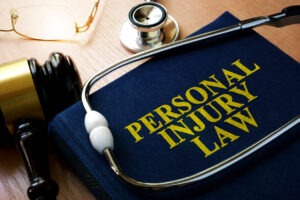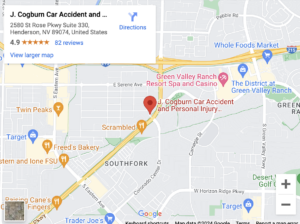
When you’re injured in an accident, it can impact more than just your physical health. It can also disrupt your daily routine, prevent you from engaging in meaningful activities, and reduce your overall enjoyment of your life. If the injury resulted from another person’s negligence, you may be entitled to compensation for diminished quality of life.
What Is Quality Of Life In Personal Injury Cases?
Quality of life is defined as an individual’s overall well-being, including their physical, emotional, and social health. After suffering an injury, a person may find it difficult or impossible to engage in the activities they once enjoyed, care for themselves, or maintain important relationships.
Diminished quality of life is considered a non-economic loss in personal injury cases. Unlike financial impacts, such as medical bills or lost wages from a job, non-economic losses refer to the emotional and psychological tolls of an injury.
How Injuries Impact Quality Of Life
Certain injuries can have long-term repercussions on the victim’s daily life. The extent of these repercussions depends on factors like the nature and severity of the injury, the individual’s lifestyle prior to the accident, and their ability to adapt to their new circumstances.
Some of the ways a person’s injuries could reduce their quality of life include:
- Chronic Pain and Discomfort: Ongoing pain can make daily tasks extremely challenging or unbearable.
- Loss of Independence: Some injuries may require victims to have assistance with basic needs, such as dressing themselves, bathing, or driving.
- Inability to Work or Pursue a Career: A severe injury could also prevent the victim from returning to or advancing in their job.
- Emotional and Psychological Effects: Anxiety, depression, PTSD, and other forms of emotional distress are common after serious accidents.
- Social Isolation: When a person is unable to derive joy from their hobbies or interests, it can cause loneliness and frustration.
These effects can significantly alter an individual’s happiness and well-being, making quality of life an important aspect to consider in personal injury claims.
Types Of Injuries That Can Reduce Quality Of Life
Not all injuries have the same effects on daily living. Some injuries may be relatively minor, while others can be life-altering, leading to long-term consequences that can endanger the victim’s physical, emotional, and financial stability. Examples of the latter include:
- Traumatic Brain Injuries
- Spinal Cord Injuries
- Amputations
- Severe Burns
- Loss of Vision or Hearing
All of these injuries present unique challenges that can hinder a victim’s ability to live as they did prior to the accident.
How Courts Evaluate Quality-Of-Life Damages
Since diminished quality of life is considered a non-economic form of harm, there’s no standard formula for calculating the compensation a victim is due. Instead, courts and insurance adjusters consider a variety of other factors, such as:
- The severity of the injury
- The victim’s age and health before the injury
- The impact on daily activities
- Emotional and psychological suffering
- Medical opinions and expert testimony
Every personal injury case is unique, so the more information and evidence a claimant can provide when pursuing their case, the higher their compensation, including quality-of-life damages, is likely to be.
Proving Diminished Quality Of Life In A Personal Injury Claim
Showing how an injury has impacted your life requires solid documentation and testimony. A variety of evidence may be used to support claims for diminished quality of life, including:
- Medical records
- Witness statements
- Expert testimony
- Photographic or video evidence
- Personal accounts
Because of the subjective nature of diminished quality of life, furnishing strong evidence is crucial to building a winning case.
Ways To Improve Quality Of Life After An Injury
Fortunately, there are ways to improve your overall well-being and adjust to your new circumstances. Here’s how to enhance your quality of life after an accident:
- Physical Therapy and Rehabilitation: These treatments can potentially restore mobility and function.
- Mental Health Support: Counseling and support groups can help address emotional and psychological distress.
- Assistive Devices and Adaptive Technology: Devices like wheelchairs, prosthetics, and electronic communication tools can offer more independence.
- Lifestyle Adjustments: Modifying your daily routine and exploring new activities may help you feel more fulfilled.
- Legal Compensation: Financial support can provide access to better medical care, rehabilitation, and other necessary resources.
Life after an injury can be challenging, but the right outlook, dedicated care, and a strong support system can help victims regain a sense of normalcy.
Seek Compensation For Your Diminished Quality Of Life
If you’ve suffered an injury due to another party’s careless or reckless actions, you may be entitled to compensation for the impact on your quality of life. Contact the skilled legal team at Cogburn Davidson Car Accident & Personal Injury Lawyers today for a free consultation at 702-996-4786 and get help pursuing the financial support you need to move forward.


